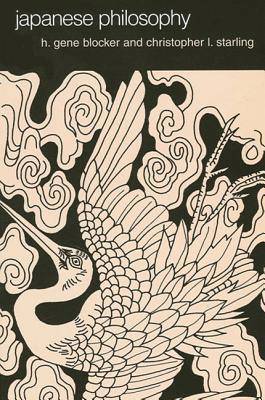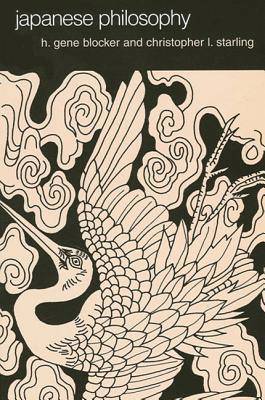
Door een staking bij bpost kan je online bestelling op dit moment iets langer onderweg zijn dan voorzien. Dringend iets nodig? Onze winkels ontvangen jou met open armen!
- Afhalen na 1 uur in een winkel met voorraad
- Gratis thuislevering in België vanaf € 30
- Ruim aanbod met 7 miljoen producten
Door een staking bij bpost kan je online bestelling op dit moment iets langer onderweg zijn dan voorzien. Dringend iets nodig? Onze winkels ontvangen jou met open armen!
- Afhalen na 1 uur in een winkel met voorraad
- Gratis thuislevering in België vanaf € 30
- Ruim aanbod met 7 miljoen producten
Zoeken
€ 145,45
+ 290 punten
Uitvoering
Omschrijving
Japanese Philosophy is the first book to assert the existence of a Japanese philosophy prior to Nishida Kitaro in the early twentieth century. Because of Western military and economic dominance since the seventeenth century, the cross-cultural comparison of non-Western philosophy has generally gone in one direction--comparing Chinese, Indian, and other thought systems with Western philosophy. For various reasons, Japanese scholars did not follow the Chinese lead after 1920 in acknowledging that some of their own literary tradition should be classified as "philosophy." In spite of this, the authors argue that it is useful to compare cultures, and that one way of comparing cultures is to compare their philosophies--and therefore that it is worth treating certain parts of Japanese literature as philosophy, especially those parts that are similar to what has long been classified and treated as philosophy in India and China. By doing so, and by providing an overview of Japanese philosophy from the seventh century to the present, the authors contribute to a greater cross-cultural understanding between East and West.
Specificaties
Betrokkenen
- Auteur(s):
- Uitgeverij:
Inhoud
- Aantal bladzijden:
- 221
- Taal:
- Engels
Eigenschappen
- Productcode (EAN):
- 9780791450192
- Verschijningsdatum:
- 19/07/2001
- Uitvoering:
- Hardcover
- Formaat:
- Genaaid
- Afmetingen:
- 160 mm x 236 mm
- Gewicht:
- 426 g

Alleen bij Standaard Boekhandel
+ 290 punten op je klantenkaart van Standaard Boekhandel
Beoordelingen
We publiceren alleen reviews die voldoen aan de voorwaarden voor reviews. Bekijk onze voorwaarden voor reviews.











